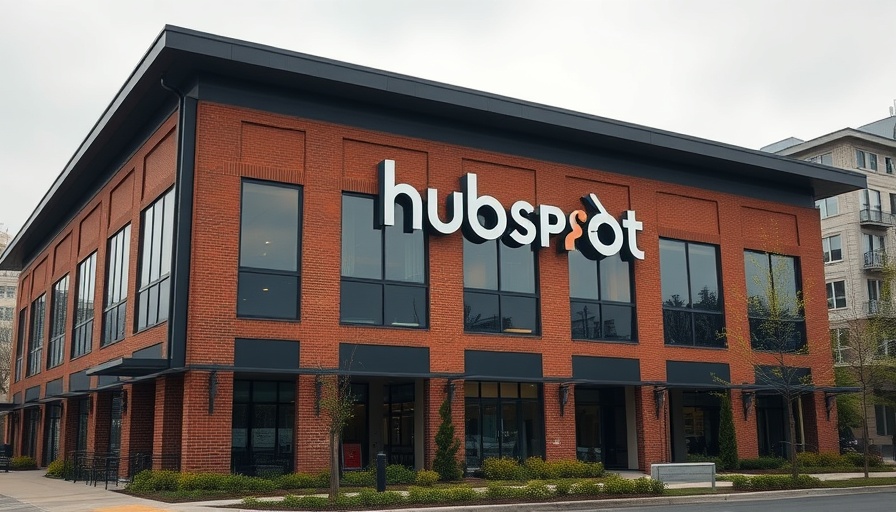
Understanding HubSpot's AI Strategy and Its Impact
In the rapidly evolving landscape of artificial intelligence (AI), HubSpot is taking significant strides to integrate AI into its marketing software solutions. At the annual Inbound customer conference, HubSpot unveiled a suite of new AI tools designed to enhance the functionality of its platform while emphasizing the importance of hybrid human-AI teams. By focusing on optimizing customer interactions through context-aware AI applications, HubSpot aims to elevate user experience and operational efficiency.
What Makes HubSpot's AI Tools Stand Out?
One of the key elements of HubSpot's AI approach is its emphasis on agentic AI. This concept focuses on empowering both humans and AI agents to collaborate effectively. According to Karen Ng, Head of Product, HubSpot believes that the best hybrid teams require a deep understanding of the context in which they operate. As such, they are investing heavily in developing capabilities that help users leverage proprietary business data, ensuring that AI agents can function optimally in various marketing, sales, and customer service scenarios.
The Evolution of HubSpot’s Pricing Strategy
As part of their commitment to creating effective AI solutions, HubSpot is shifting its pricing structure to enhance flexibility and value for customers. Initially, users were charged a per-seat licensing fee for AI tools. However, in response to market demands, HubSpot introduced a consumption-based pricing model. This model allows businesses to pay based on their usage of AI-powered features, thereby aligning costs with the value generated from these tools. This hybrid model not only helps manage expenses but also incentivizes more extensive usage of the AI agents, which can improve customer engagement and support ticket resolution.
Building Trust in AI Systems
As AI continues to reshape the workforce, trust becomes a critical factor in its adoption. HubSpot is keenly aware of this and incorporates user permissions into their AI framework, allowing companies to control what information AI agents can access. This level of control fosters trust, as businesses can ensure sensitive data is managed appropriately. Ng emphasized that trust is integral to their AI strategy, allowing users to feel secure about how their data is used in conjunction with AI applications.
Future Predictions and Opportunities in AI
The future of AI in business is filled with opportunities and challenges, one of which is balancing automation with human jobs. As productivity increases through the integration of AI, companies like HubSpot recognize that this may influence staffing needs. Ng highlighted their philosophy: focusing on value before monetization. This approach ensures that the company remains customer-centric, prioritizing improvements that benefit users rather than merely seeking to maximize profits.
AI Tools That Could Change the Marketing Game
Alongside their AI agents, HubSpot has introduced features such as a deep research connector for OpenAI’s ChatGPT, empowering users to analyze customer data in sophisticated ways. By leveraging natural language processing capabilities, marketers can gain deeper insights into customer behavior, preferences and trends, enabling more personalized interactions and refined marketing strategies.
Why Understanding This Matters to Businesses
For businesses navigating the AI landscape, understanding HubSpot's approach to integrating AI into its offerings is critical. The trend towards agentic AI and hybrid teams signifies a shift in how companies can enhance customer experiences while optimizing team productivity. By adopting these innovations, organizations can stay competitive, adjust to the evolving technological landscape, and meet the expectations of increasingly tech-savvy consumers.
In conclusion, HubSpot’s commitment to enhancing its platform with AI tools and frameworks positions it as a leader in the marketing software market. By focusing on building hybrid teams, ensuring trust, and developing flexible pricing models, HubSpot aims to supercharge human effort while preparing businesses for the future of AI-driven customer engagement.
 Add Row
Add Row  Add
Add 




Write A Comment